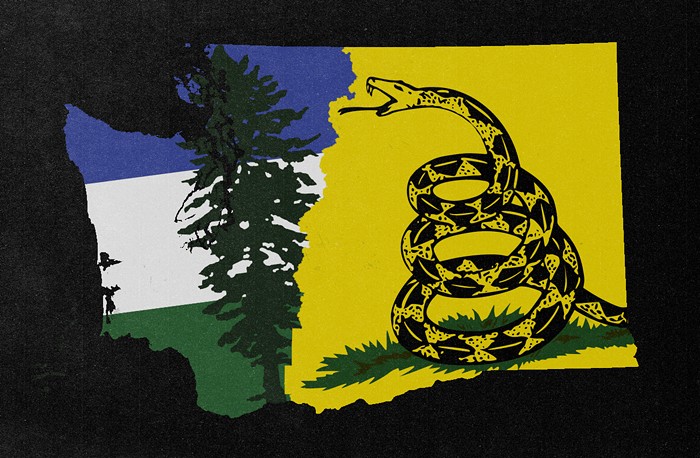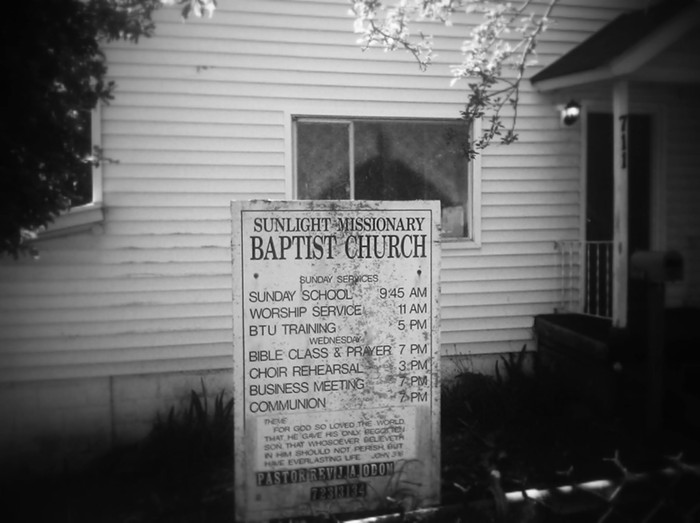
Every time I walk around a street corner in Seattle, I imagine that I’ll see my sister Carly’s face one more time.
Rep. Brady Walkinshaw, candidate for Congress in the 7th District, didn’t meet Carly before she died. But Brady has spent his legislative career fighting for her memory and the memories of thousands of others like her who have suffered from the disease of opioid addiction, and he will continue that fight in Congress.
I imagine seeing Carly’s knowing smile, her enduring cynicism, and her curiosity for the world. I see our childhood, arguing in the car on a long road trip, or bonding over our dreams of something greater. I see my future, how my identity as a liberal and feminist was shaped by her positive rage at the world’s patriarchal power structures. And, just as clearly, I see the future she will never have, as her promise as a writer, including winning a highly competitive award from the Washington State Library before attending Sarah Lawrence College, was cut tragically short.
But it’s never actually Carly around the street corner, because Carly died in New York City on March 28, 2011, taken from the world too soon by a fatal overdose of heroin and other drugs.
I grieved for my sister by throwing myself into what I know best: public policy and the legislative process. Opioid addiction and overdose is like so many of the problems we face as a city and a nation: there is no easy fix and it is intertwined with the issues of race, class, poverty, and homelessness that Seattle has been grappling with for years.
In Brady Walkinshaw I found an ally and a friend. After he was first appointed to the legislature in 2013, I e-mailed Brady as a constituent, told him my sister’s story, and asked what could be done. It was too late for Carly, but not too late for others like her.
Brady didn’t just respond to my email with kind words or platitudes – he created an immediate plan of action for how he could take this issue on in Olympia. In subsequent meetings, Brady displayed a level of emotional intelligence, empathy, and passion that is rare not just for the average politician, but for most human beings.
We learned that Carly’s life, and the lives of thousands of others, could have been saved with application of the anti-overdose drug naloxone. Similar to an epinephrine pen treating a potentially lethal allergic reaction, naloxone can stop an overdose in its tracks. Brady put together a coalition of stakeholders across the state and they quickly identified access to naloxone as the place to start.
Brady’s legislative solution was HB 1671, a bill designed to get naloxone into the hands of first responders working across the state. In a heavily divided legislature, where barely any bills gain approval from both houses, Brady’s work has been the exception. He reached out to colleagues on both sides, and the bill passed the House last year by an overwhelmingly bipartisan 97-1 vote before Governor Inslee signed it into law. As Brady vies to represent us in a Congress that is even more divided, this skillset is one to be admired – artfully advancing progressive priorities in a way that both parties can agree on.
HB 1671 dramatically increased access to naloxone by allowing first responders, family members, and service provider organizers like the Downtown Emergency Services Center (DESC) and Evergreen Treatment Services to carry the drug in large amounts, and have it on hand whenever they encounter an overdose. Since HB 1671 was signed into law, the results have been immediate. DESC reported in February that the law was helping avert overdoses at a rate of about one a month.
Naloxone is only the beginning of a response to opioid abuse, not the end. As the King County Heroin and Prescription Opiate Addiction Task Force continues to work on recommendations for our region, it’s clear that our strongest partner in Washington, D.C. would be Brady Walkinshaw. There’s still so much that could be done, including safe consumption sites, Good Samaritan Law education, and expanding Seattle’s innovative LEAD program. Seattle and King County are poised to lead the nation on these issues, and Brady Walkinshaw will do the same in Congress.
But opioid addiction has ravaged communities of color for decades without the press coverage that often follows the same tragedies in white communities. Importantly, the same approach I’ve seen Brady take to our opiate crisis is the way he’s led on the interconnected issues of criminal and juvenile justice, mental health, tenant rights, and homelessness. Brady has put forward and passed into law a broad suite of policies that seek to decrease racial inequities in the criminal justice system, including decriminalizing minor drug offenses, helping ex-offenders reenter into society, and increasing access to mental health services.
More than five years have passed since I lost my sister. These days, rounding street corners in Seattle, I look for her face less and less. Carly’s not coming back, but I still see her. I see her in the faces of the people in our community—rich and poor, white or of color, young or old, but all someone else’s brother or sister or mother or father or daughter or son—whose lives will be saved and whose families will stay whole because of Carly’s legacy, a legacy that Brady Walkinshaw fought for and secured.
Brady’s progressive leadership on addiction and opioid use, and so many other issues, has been unmatched in humility and effectiveness. In the battle to make our world a better place, more like my sister dreamed of, Brady Walkinshaw is a unique leader who has been on the front lines – and he deserves your vote to take that fight to Congress.
Erik Houser is a student at the UW Evans School of Public Policy & Governance. He lives in Wallingford.














